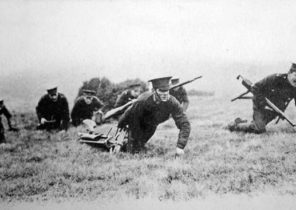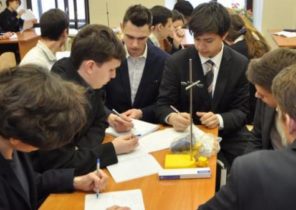On the territory of about the size of half of Germany is home to only 44 thousand people”Who will pay attention to us tomorrow?” asked Ludmila Latander fighting for autonomy in their region — Nenets Autonomous area, a territory on the outskirts of Russia, inhabited by nomadic tribes. She is concerned about the economic development of the Arctic.
“I’m afraid that if the Nenets district is annexed to another region, nobody cares about our language or traditions, and our villages in the tundra to be forgotten,” says 61-year-old Latander, member of the Association of Nenets people of “Yasavey”.
In may, located on the shore of the Arctic ocean Nenets Autonomous Okrug was shocked by the wave of protests after announcing plans to merge with neighboring Arkhangelsk oblast.
The merger was aimed at a more effective solution of logistic tasks and improve the management of natural resource in both areas, writes Romain colas from AFP.
In the end, after the Nenets district, the area of which is approximately half of Germany and a population of 44 thousand people loudly declared their opposition, but this idea failed: 1 Jul Okrug was the only region of Russia where 55% voted against amending the Constitution to strengthen the powers of Vladimir Putin.
It was a clear signal before the election of the district chief
“Let the President remains in power, if he wants, but no one should infringe on our autonomy!” said 57-year-old local activist and retired high-ranking official in Victoria Bobrova. “We will continue to fight the regional elections in September,” she added.
Shamanism and animal skins
Nenets Autonomous district is known for its harsh climate and herders, wandering the expanses of the Arctic. They have kept the way of life of ancient people — live in traditional dwellings portable, wear the skins of animals and the practice of shamanism.
The indigenous population, as part of the Russian majority, fears that these features of their lives will be sacrificed on the altar of strategic priorities of the Kremlin: the exploitation of raw materials in the Arctic and the North sea trade routes, which contributes to melting of glaciers caused by climate change.
The Nenets are a Samoyedic people, constituting about 18% of the local population. They gave the name of the territory which now has its own budget and significant reserves of fossil fuels. Something that guarantees its autonomy.
Many residents believe that the transfer of control of their lands to the neighboring region could threaten their way of life, starting with reductions in generous subsidies for Northern reindeer herding.
“Here, away from everything, and hard to live with. We don’t want our standard of living has fallen even more,” says local businessman Tatyana Antipina.
That is why within a few weeks residents of the district staged public protests, signed petitions and campaigned on social networks. The leaflets sent on ships and helicopters, even in the most isolated villages.
Train to the moon
According to Victoria Bobrova, people voted “against” on the referendum, Putin, to be sure that their desire of autonomy will be heard.
Others have used the vote to draw attention to the abandonment of the Arctic villages, such as Salonga fishing village on the shore of the Barents sea, which is home to 35 people. Here are all 17 of the electorate voted against.
“There is nothing left, no job, the village is falling apart. Why should we vote for a new Constitution?” asked the 62-year-old Michael owners, once engaged in production of salmon.
To avoid falsification of the results, the observers closely followed the counting of ballots. This acquired experience will help them in the elections on September 13.
After the referendum, acting Governor of the Nenets Autonomous district Yuri Bezdomny said that the issue of merger with the Arkhangelsk region is closed, but activists remain vigilant. Remain relevant major controversial development projects in the Arctic.
Local authorities support the construction of a deepwater port in the village of Indiga, Nenets Autonomous Okrug, which will be connected to the Archangel of the new railway line.
“Maybe this line will be difficult and expensive to build because it passes through an extensive marsh areas. It’s like sending a train to the moon,” says Victoria Bobrova.







